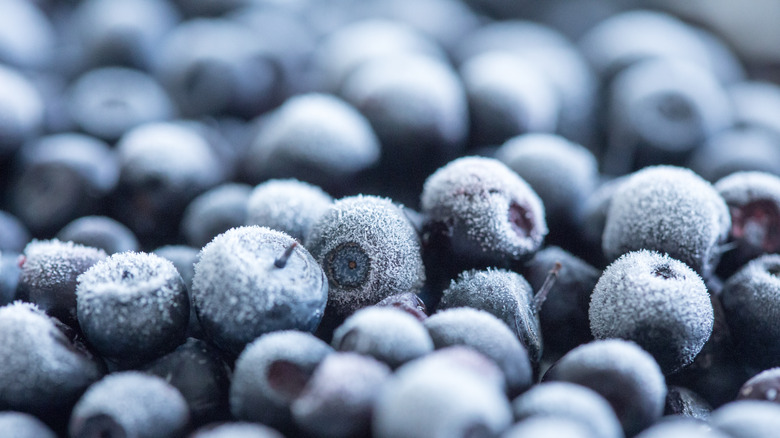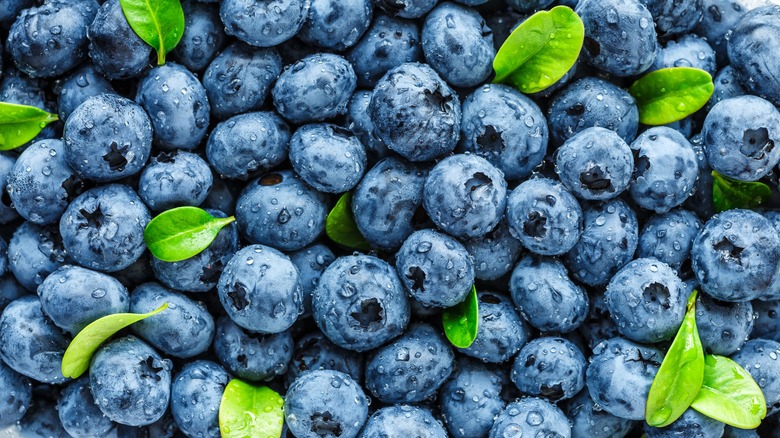Why Frozen Blueberries Are More Colorful Than Fresh Ones
We all know someone who swears by using frozen fruit. Freezing products is one of the most popular ways to extend the shelf life of and store fruits like strawberries, raspberries, and blueberries. As far as frozen fruit goes, blueberries are some of the easiest to come across. If you've seen them before, you will have noticed something pretty striking: Frozen blueberries are more colorful than fresh ones. Interestingly, this has a simple explanation. Freezing blueberries enhances the presentation of their anthocyanins, which are water soluble pigments found in the skin. By freezing them, you're bringing out their "blueness" even more.
Anthocyanins aren't just pretty faces, either. These compounds are nutritional powerhouses (and part of the reason that these fruits are widely considered a superfood). Anthocyanins are thought to reduce blood pressure and protect against heart disease, and they also have anti-inflammatory properties. Basically, you want plenty of them. And according to a 2013 study conducted by the South Dakota State University (via Science Daily), ice crystals shatter the once-uniform distribution of anthocyanins when they're frozen, meaning that blueberries are actually more nutritious after freezing. It's just so much easier for our bodies to digest all those healthy pigments.
Are frozen or fresh blueberries tastier in recipes?
You won't struggle to find either berry type for recipes, especially given that the U.S. produces the most blueberries worldwide. But here's the thing: While you'll notice a change in color and a nutritional variation between frozen and fresh, there's no taste difference. You may just note a slightly mushy texture once the frozen blueberries thaw, whereas fresh blueberries maintain more of a "pop."
However, this textural difference is so minuscule that it's hard to detect. Whether this is even a factor worth considering really depends on what recipe you use. Overall, the only time fresh is clearly better is if you aren't baking the blueberries — for instance, when using them as toppings for dishes like sundaes or cinnamon toast. As a whole, freezing the berries is recommended, as you'll get more health benefits, brighter colors for your dishes, and limited negatives.
Surely that's a fair swap for a slight texture change, especially if you're baking blueberries when they'd be mushier anyway. It's easy to see why so many people opt to buy frozen blueberries or freeze their own instead of buying fresh ones, and that's without even raising the fact that freezing extends their shelf life. Nobody wants expired blueberries after a few days. So, which type will you be using for your next blueberry clafoutis?

